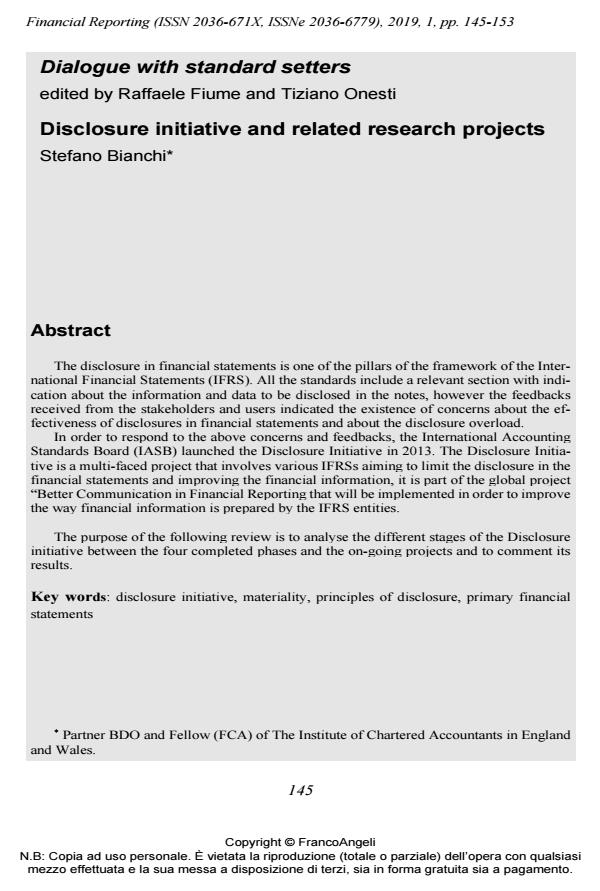Dialogue with standard setters. Disclosure initiative and related research projects
Journal title FINANCIAL REPORTING
Author/s Raffaele Fiume, Tiziano Onesti, Stefano Bianchi
Publishing Year 2019 Issue 2019/1
Language English Pages 9 P. 145-153 File size 360 KB
DOI 10.3280/FR2019-001005
DOI is like a bar code for intellectual property: to have more infomation
click here
Below, you can see the article first page
If you want to buy this article in PDF format, you can do it, following the instructions to buy download credits

FrancoAngeli is member of Publishers International Linking Association, Inc (PILA), a not-for-profit association which run the CrossRef service enabling links to and from online scholarly content.
The disclosure in financial statements is one of the pillars of the framework of the International Financial Statements (IFRS). All the standards include a relevant section with indication about the information and data to be disclosed in the notes, however the feedbacks received from the stakeholders and users indicated the existence of concerns about the effectiveness of disclosures in financial statements and about the disclosure overload. In order to respond to the above concerns and feedbacks, the International Accounting Standards Board (IASB) launched the Disclosure Initiative in 2013. The Disclosure Initiative is a multi-faced project that involves various IFRSs aiming to limit the disclosure in the financial statements and improving the financial information, it is part of the global project “Better Communication in Financial Reporting that will be implemented in order to improve the way financial information is prepared by the IFRS entities. The purpose of the following review is to analyse the different stages of the Disclosure initiative between the four completed phases and the on-going projects and to comment its results.
Keywords: Disclosure initiative, materiality, principles of disclosure, primary financial statements
- Non-Fungible Token valuation: State of the art and future insight Paola Paoloni, Giuseppe Modaffari, Martina Manzo, in FINANCIAL REPORTING 2/2023 pp.39
DOI: 10.3280/FR2023-002002
Raffaele Fiume, Tiziano Onesti, Stefano Bianchi, Dialogue with standard setters. Disclosure initiative and related research projects in "FINANCIAL REPORTING" 1/2019, pp 145-153, DOI: 10.3280/FR2019-001005